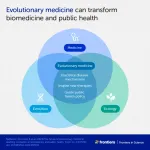The supplement, titled, “Advancing Primary Care through Research, Education and Practice: Work of the Health Resources and Services Administration–Supported Academic Units for Primary Care Training and Enhancement,” highlights activities of six HRSA-funded academic units for primary care training enhancement. These units were tasked with examining and improving health equity; bolstering primary care training to better serve the needs of patients, families, and communities; and generating new research in these focus areas.
HRSA is the primary federal agency for improving access to health care services for people who are uninsured, isolated or medically vulnerable.
This supplement consists of seven original research articles, one theory article, one scoping review, seven special reports, two essays, and one editorial, from nationally recognized experts in primary care research and practice transformation.
Original Research Findings
Researchers present a model for education that integrates care in both primary care and dental settings
The Teaming and Integrating for Smiles and Health project was established at Harvard School of Dental Medicine to help health care organizations accelerate progress in integrating oral and primary care delivery. By providing expert support and a structure for testing change, the project aimed to improve the early detection of hypertension in the dental setting and gingivitis in the primary care setting, and to increase the rate of bi-directional referrals between oral and primary care partners. Although gingivitis screening and referral to oral health care were not significantly improved, the collaborative demonstrated that virtual learning is an accessible and productive avenue to improve interprofessional education, promote and strengthen oral and primary care partnerships, and support practical progress in integrated care.
Partnering for Integrated Care: A Learning Collaborative for Primary Care and Oral Health Teams by Kaitlyn Cardenas, BS, et al, Boston, Massachusetts Study evaluates the current state of teaching about antiracism in undergraduate and graduate medical education
Medical schools inconsistently teach students about the impact of structural racism on health care access, quality, and outcomes, instead focusing primarily on human biological function as the foundation for medical education. This is despite evidence that structural racism and other social injustices have perpetuated health inequities for decades. Research authors argue that inclusion of anti-racism in medical education requires additional training of instructors; focused institutional policies; enhanced foundational awareness of the impact of racism on patients and communities; and changes at the level of institutions and accreditation bodies.
The Current State of Antiracism Curricula in Undergraduate and Graduate Medical Education: A Qualitative Study of US Academic Health Centers by Chyke A. Doubeni, MD, MPH, et al, Columbus, Ohio Opioid use disorder-related stigma is commonly observed and impedes medically assisted treatment for OUD
Researchers assessed barriers and facilitators to successful program implementation of medically assisted treatment for those with opioid use disorder. The researchers assert that achieving stigma-free OUD care will ultimately require a cultural shift in clinical and educational settings that readily dispels myths associated with origin stigma and design curricula, as well as those that reinforce learning opportunities to care for people with OUD.Impact of Stigma on Clinician Training for Opioid Use Disorder Care: A Qualitative Study in a Primary Care Learning Collaborative by Chyke A. Doubeni, MD, MPH, et al, Columbus, Ohio Pediatric care provider network educates and motivates clinicians and non-clinicians to improve patient access to oral health
Oral disease significantly impacts the overall health of U.S. children, with tooth decay being the most prevalent chronic disease in children. With dental provider shortages occurring nationwide, interprofessional clinicians and staff with proper training can influence oral health access. A team of investigators found that the Oral Health Knowledge Network, a collaborative of pediatric care providers, had a positive impact on clinicians and non-clinicians by increasing their knowledge/skills and motivation to improve their patients' access to oral health through resource sharing as well as clinical practice change. Evaluation of the Oral Health Knowledge Network's Impact on Pediatric Clinicians and Patient Care by Tien Jiang, DMD, MEd, et al, Boston, Massachusetts Clinicians can work proactively to reduce mental illness stigma by encouraging patient self-disclosure and listening with more empathy
Stigma related to mental health can pose a significant barrier to individuals utilizing mental and physical health care. Integrated Behavioral Health (IBH), in which behavioral/mental health care services are situated within a primary care setting, may reduce the experience of stigma. Study authors support health care clinicians engaging in patient conversations that are patient centered and normalize mental health discussions as ways of reducing stigma. Clinicians can also encourage patient self-disclosure by using greater empathy and relating more to the patient. They can also strive to increase patients’ understanding of their experiences as ways to reduce stigma and remove health care–seeking barriers.
Patient and Health Care Professional Perspectives on Stigma in Integrated Behavioral Health: Barriers and Recommendations by Sean M. Phelan, PhD, MPH, et al, Rochester, Minnesota Researchers describe the development, implementation and integration of Mayo Clinic’s pediatric and adult primary care psychotherapy tracking database
Many individuals experiencing behavioral health challenges receive services in primary care. Integrated behavioral health (IBH) programs can help physicians gain increased access to evidence-based interventions. IBH programs stand to reap significant benefits from integrating standardized tracking databases that allow for the implementation of measurement-based care to evaluate patient-, physician-, and practice-level outcomes. Researchers from the Mayo Clinic describe the development and integration of a psychotherapy tracking database, which they argue allows for better physician communication, examination of patient outcomes, practice quality improvement efforts, and clinically relevant research. Study What You Do: Developing a Psychotherapy Tracking Database in a Large-Scale Integrated Behavioral Health Service by Anne I. Roche, PhD, et al, Rochester, Minnesota Mixed-methods study examines the integration of behavioral health topics into postgraduate dental curriculum
Researchers evaluate the integration of behavioral health topics such as the identification of eating disorders, depressive disorders, opioid use disorder, and intimate partner violence in primary care postgraduate dental curricula. They argue that greater efforts are needed by advanced education in graduate dentistry and general practice residency programs to include behavioral health content so that those clinicians are able to address these conditions. Behavioral Health Within Primary Care Postgraduate Dental Curricula: A Mixed Methods Study by Shenam Ticku, BDS, MPH, et al, Boston, Massachusetts EDITORIAL
Obstacles and Opportunities on the Path to Improving Health Professions Education and Practice: Lessons From HRSA’s Academic Units for Primary Care Training and Enhancement Stephen D. Persell, MD, MPH, and Christine A. Riedy, PhD, MPH, write the special supplement’s editorial, placing the supplement’s articles within the wider context in which primary care and family medicine doctors function today, outlining challenges, opportunities and communities that foster education on how the profession can move forward. Supplement articles tackle more specific areas of concern, including having in place a workforce trained to care for those among marginalized groups; eliminating stigmas and barriers associated with mental health care seeking; tackling socioeconomic issues; and making primary care more all-encompassing in regard to health care provision, such as overlapping services to address oral as well as mental health care. Although the research is new and not widely implemented yet, Persell and Riedy hope that it will contribute momentum to other existing efforts to reimagine primary care and create health care that is whole-person oriented, interprofessional, community focused and equitable.
Guest Editors: Stephen D. Persell, MD, MPH, Division of General Internal Medicine, Department of Medicine and Center for Primary Care Innovation, Institute for Public Health and Medicine, Feinberg School of Medicine, Northwestern University, Chicago, Illinois; and Christine A. Riedy, PhD, MPH, Oral Health Policy and Epidemiology, Harvard School of Dental Medicine, Boston, Massachusetts
SPECIAL REPORTS
Revolutionizing Health Professions Admissions to Achieve an Inclusive Workforce By Mytien Nguyen, MS, et al, New Haven, Connecticut
100 Million Mouths Campaign: Creating a Pilot Program to Advance Oral Health Equity Shenam Ticku, BDS, MPH, et al, Boston, Massachusetts
Building Rural Primary Care Research by Connecting Rural Programs
By David F. Schmitz, MD, et al, Grand Forks, North Dakota A Curated Curriculum Collection to Support Social Determinants of Health Education for the Health Professions
By Stephen D. Persell, MD, MPH, et al, Chicago, Illinois Transforming Medical Education to Provide Gender-Affirming Care for Transgender and Gender-Diverse Patients: A Policy Brief By Aramandla Ramesh, PhD, et al, Nashville, Tennessee
Let’s Not Reinvent the Wheel: Using Communities of Learning and Practice to Address SDOH and Advance Health Equity By Memoona Hasnain, MD, MHPE, PhD, Chicago, Illinois and Ashley Darcy-Mahoney, PhD, NNP-BC, FAAN, George Washington University, Washington, D.C.
Supporting Mental Health and Psychological Resilience Among the Health Care Workforce: Gaps in the Evidence and Urgency for Action By Oluwatoyin Akinnusotu, BS, et al, Rochester, Minnesota
THEORY PAPER
Curricular Interventions in Medical Schools: Maximizing Community Engagement Through Communities of Practice By Aramandla Ramesh, PhD, et al, Nashville, Tennessee
SCOPING REVIEW
Examining How Social Risk Factors Are Integrated Into Clinical Settings Using Existing Data: A Scoping Review By Mita Sanghavi Goel, MD, MPH, et al, Chicago, Illinois
ESSAYS
Why Are Family Doctors Still Not Addressing Oral Health?
By Hugh Silk, MD, MPH, FAAFP, et al, Worcester, Massachusetts Our Souls Look Back and Wonder: Reflections on Belonging and Being Invisible in Medicine By Alicia Gonzalez-Flores, MD, et al, Sacramento, California
# # #
About Annals of Family Medicine
Annals of Family Medicine is a peer-reviewed, indexed research journal that provides a cross-disciplinary forum for new, evidence-based information affecting the primary care disciplines. Launched in May 2003, Annals of Family Medicine is sponsored by seven family medical organizations, including the American Academy of Family Physicians, the American Board of Family Medicine, the Society of Teachers of Family Medicine, the Association of Departments of Family Medicine, the Association of Family Medicine Residency Directors, NAPCRG, and the College of Family Physicians of Canada. Annals of Family Medicine is published six times each year and contains original research from the clinical, biomedical, social and health services areas, as well as contributions on methodology and theory, selected reviews, essays and editorials. Complete editorial content and interactive discussion groups for each published article can be accessed free of charge on the journal’s website, www.annfammed.org.
END






